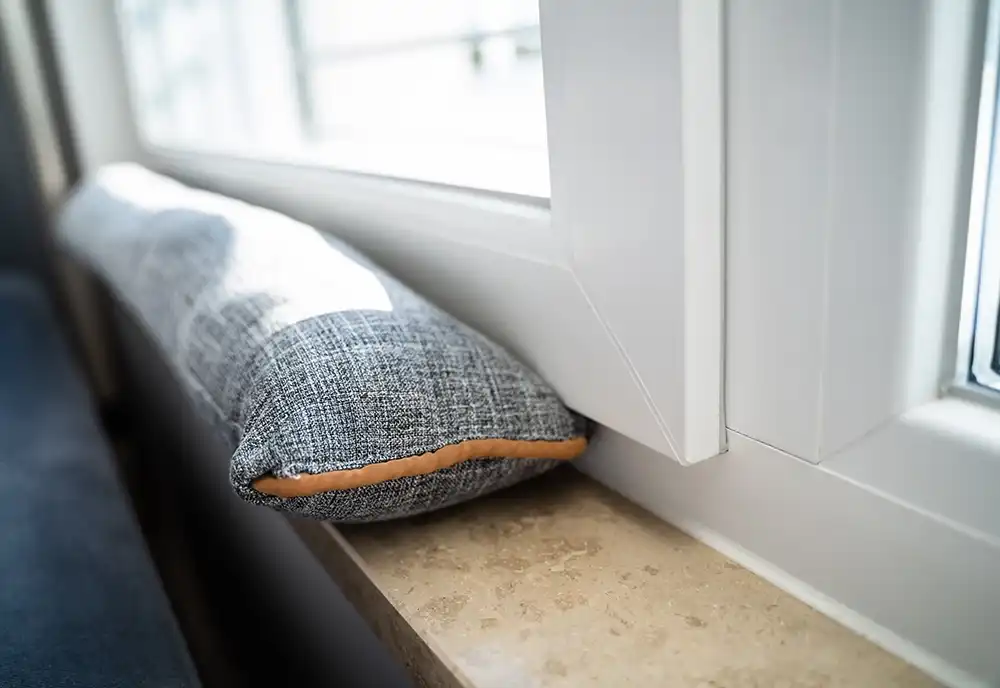
10 June 2024
Leaky Window Repair: Causes and Fixes
If you have leaking windows, you’ll want to find out why your windows are leaking and how to fix them quickly. Leaky windows aren’t only a nuisance, they’re a repair item because moisture can cause problems to your home, especially a basement window. See what you should do with leaky windows to fix the problem.
Causes of Leaking Windows
There are common causes of leaky windows like old caulk, installation issues, and gasket failure. Often, a leak appears because the caulk or sealant has started to deteriorate. Something like wear and tear can get repaired easily but an installation issue or a design flaw can take longer to fix.
Old Caulk Lets in the Elements
Caulk can start to degrade over time. When that happens, it can open gaps between your window and opening, which water and wind can penetrate. Most window leaks occur because of a caulk breakdown. Condensation around the edge of a window when it rains can signal the breakdown of caulk or sealant.
Broken Window Lock Can Lead to Air Leakage
A broken window lock can prevent a window from closing properly, leaving a path for water to enter a home. Installing a new window lock can fix a leaky window. But if the window doesn’t close properly, you might have a bigger issue with your window. Your window could have warped, been improperly installed, or suffer from a design issue.
Windows Were Improperly Installed
If caulk or sealant isn’t the issue, you’ll have to look at the window installation. Poor flashing can result in gaps, which water can seep through. If that’s the case, you’ll likely have to repair or replace the window, depending on the extent of the damage.
Seal Failure
Double pane windows have a perimeter seal for an airtight fit and have a gas fill between the panes to improve energy efficiency. When a seal breaks, moisture can build up between the panes, which can lead to more problems since moisture can rot wood or lead to mold. Resealing a window requires a pro to repair the window.
Where Windows Leak
Sometimes finding the source of a window leak doesn’t come easily. Windows can leak from the top, bottom, or the sides. While you expect to see water after rain with a leaking window, a window can leak even when it hasn’t rained.
Water Leaks When it Rains
A leak around the edges of your window suggests you have failing caulk or sealant. To fix the leak, you’ll have to remove the old sealant and add a new layer. It’s best to replace all the caulk or sealant at one time rather than try to pinpoint the trouble side. Recaulking your windows can be a DIY repair if you’re comfortable doing so. If you’ve never done it before or don’t feel comfortable, you can call a replacement window company for service.
Water Leaking at the Top of the Window
A water stain near the top of your window doesn’t mean you have a leaking window. A water stain can show you have a water issue inside your walls. If you suspect you have water inside your walls, you’ll need a plumber to inspect the area.
Water Damage on the Bottom of the Window Frame
Water that comes through the bottom of a window frame can signal a bigger problem. If water appears on the bottom of the frame, it can mean the window has warped, or the frame doesn’t fit the glass panes tightly. A warped window likely won’t shut properly. If that’s the case, then it’s a sign to replace your windows.
Window Leaks When it Doesn’t Rain
If you notice a window leak even when it isn’t raining, you might be looking at window condensation. Window condensation occurs when warm air hits a cooler surface. You can adjust the humidity levels in your home to prevent window condensation.
Water Between Window Panes
If you see water between your window panes, you likely have a bad glass seal. It can make for foggy windows. A bad glass seal doesn’t mean water will enter your home. The inert gas between the panes has likely escaped. The inert gas helps with energy efficiency. A seal failure is usually covered with a product warranty, so it’s best to contact your window manufacturer for repairs.
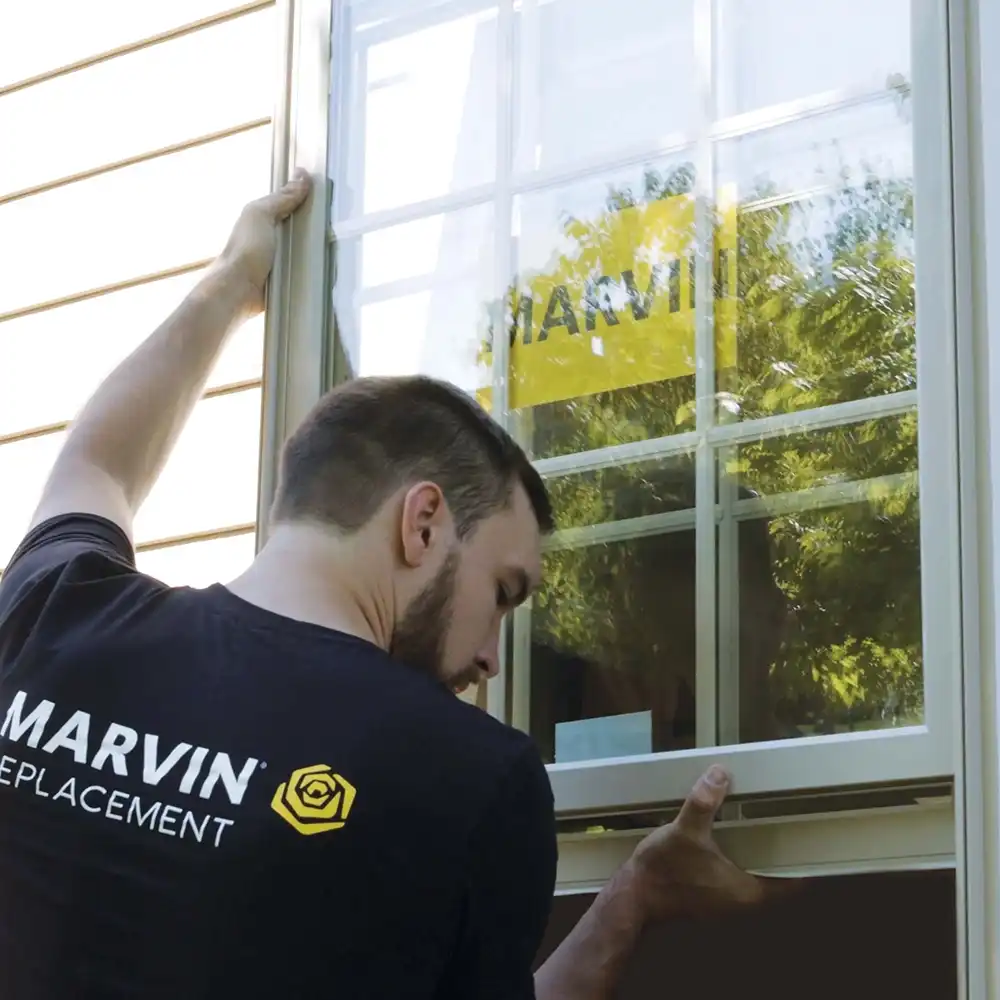
Ways to Fix Leaky Windows
Inspect potential paths for water into your home to fix leaky windows. A leaky gutter can drop water on your windows and create moisture problems. After you’ve inspected the possible causes for water to leak into your home, fixing a leaky window usually means recaulking the window. Tougher problems can require a window replacement professional. If you're ready to replace your windows, schedule a consultation with a Marvin Replacement design consultant.
Inspect Caulking, Warp, Weatherstripping, Water Stains, and Gutters
You can inspect common trouble spots, like caulking and weatherstripping to begin fixing leaky windows. Cleaning your gutters can be a DIY repair when done so with proper safety precautions. You might want to contact a professional to tackle repairing or replacing gutters, replacing weatherstripping, or identifying the cause of a water stain.
Leaky Window Repairs
Replace Weatherstripping: Worn or old weatherstripping could cause your window to leak. Weatherstripping can help prevent air and water from entering the home, so it’s best to have a professional inspect the window.
Warped Windows: If you notice that your windows have warped and left an opening for water to enter, it’s a sign to have a professional replace your windows.
Water Stains: When water stains appear around a window, a pro should inspect the area and determine the repair. Repairing water stains can involve a lot of work and replacement of damaged spots.
Caulk: Windows can need recaulking from time to time. The caulk or sealant surrounds the perimeter of a window frame to help seal out air leaks or drafts. Window caulk can prevent drafty windows and help with your home’s energy efficiency. Caulking windows also helps keep out moisture in your windows.
Air Leaks: If you experience persistent window drafts, you can try a draft stopper, like a draft snake. Draft snakes are designed to prevent drafts from entering a room. How much of an effect a draft snake has against window drafts remains debatable. A better solution to fix drafty windows can be installing replacement windows.
How to Prevent Windows from Leaking
It’s important to maintain and inspect your windows at least annually. A window maintenance checklist can serve as a guide to know what to inspect. Paying attention to the caulk around your windows is a good idea since it can diminish over time. You can also check your gutters so they don’t leak or overflow onto your windows. However, if you continue to experience window leaks, it could be faulty installation. That can mean reinstallation or window replacement.
Window Replacement
If you’ve inspected caulking, weatherstripping, water stains, and gutters and believe they’re not the reason your windows leak, then call a pro. A window replacement professional can evaluate your windows to help you determine if they need replacing. A Marvin Replacement design consultant can explore replacement window options with you during a free consultation.
Frequently Asked Questions
It’s a good idea to check your warranty first before you call a contractor to repair a leaky window. If the window is still under warranty, contact the manufacturer. If it isn’t under warranty, you can call a window replacement company or a window repair business.
If you work in the fenestration industry or have extensive DIY home improvement skills, it’s possible for you to repair a leaking window on your own. Given the importance windows have in preventing wind and rain from entering your home, and the damage water can cause, it’s best to have a professional assess the situation to solve the problem correctly. A leaky window can easily lead to a mold issue, which can make repair costs soar.
Yes, a leaky window can cause mold if not repaired. Any kind of moisture, especially around wood, can lead to rot and eventual replacement of the window. Mold tends to appear as discoloration, black dots, or fuzzy growths.
Windows can leak when it rains for a variety of reasons. Gaps or cracks in the caulk around a window frame are a frequent cause of leaky windows when it rains. Windows sills with incorrect angles can lead to water issues because the window doesn’t shed water properly. An overhang that doesn’t provide enough coverage can also cause windows to leak when it rains.
Things like replacing caulk, weatherstripping, and sealing gaps are easy ways to stop leaky windows. A draft stopper or a plastic shrink wrap kit can also reduce the effect of leaky windows. But if you’re experiencing water issues with leaky windows, the best solution is often window replacement.
You May Also Like
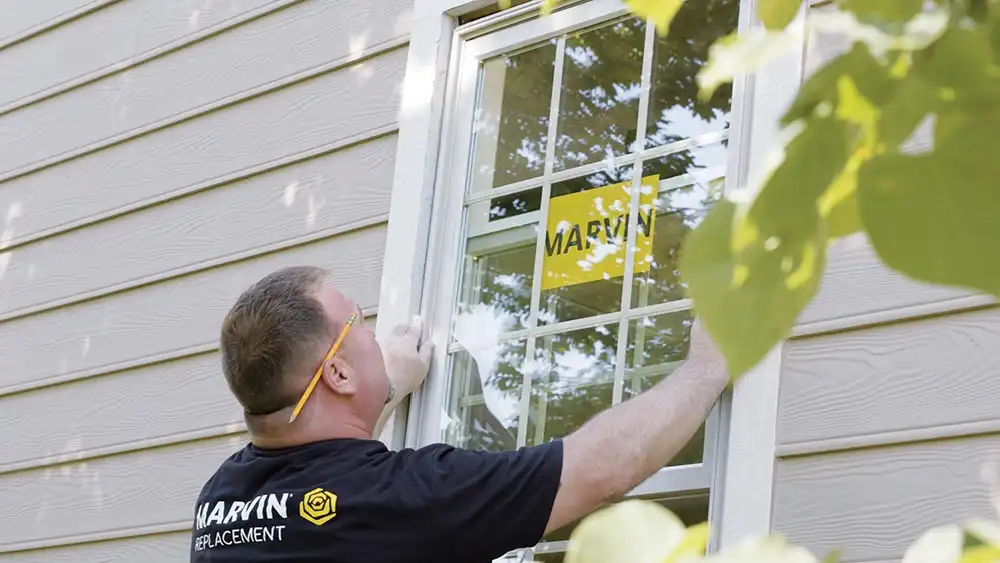
What to Expect with Window Installation
New to window replacement? See what you can expect on installation day so you can prepare.
Window Installation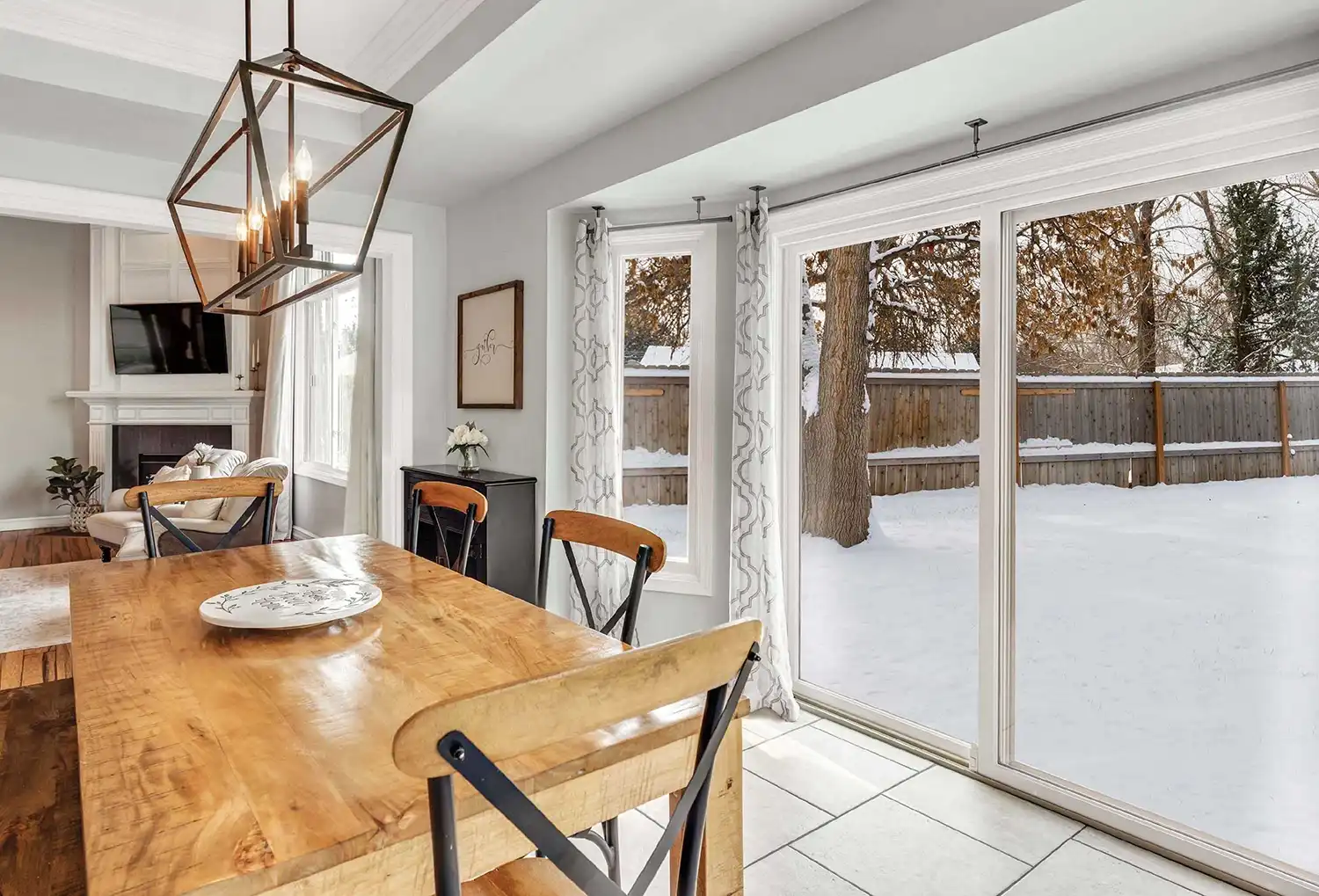
Tips to Winterize Windows + Patio Doors
Prepping your windows and doors for winter doesn't take a lot of work. Try some of these tips to winterize your windows and patio doors.
Winterizing Window + Patio Door Tips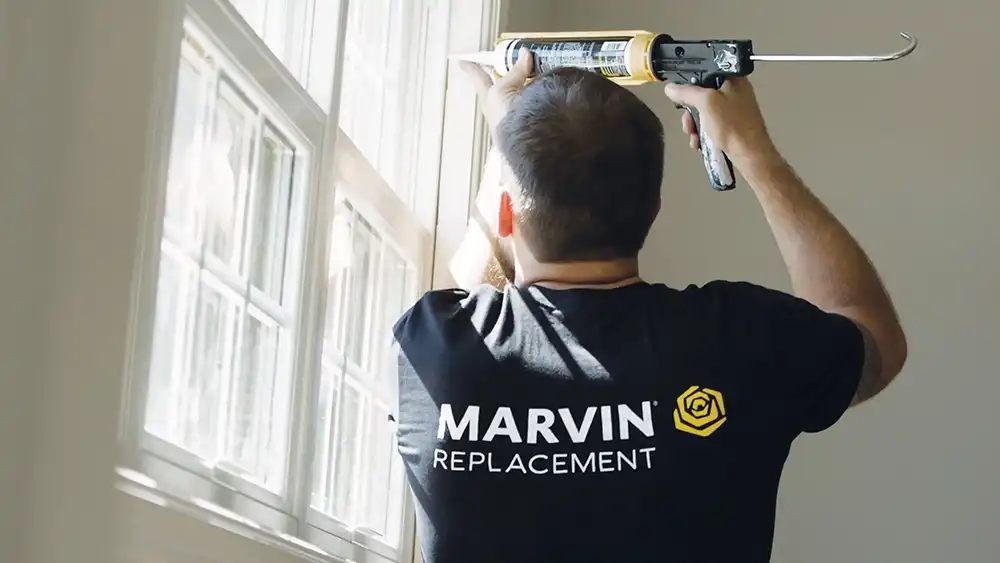
What is a Home Energy Audit?
A home energy audit can give you a picture of improvements you can make to your home to decrease energy use and can improve energy efficiency beyond replacing your windows and doors.
Do you need a home energy audit?